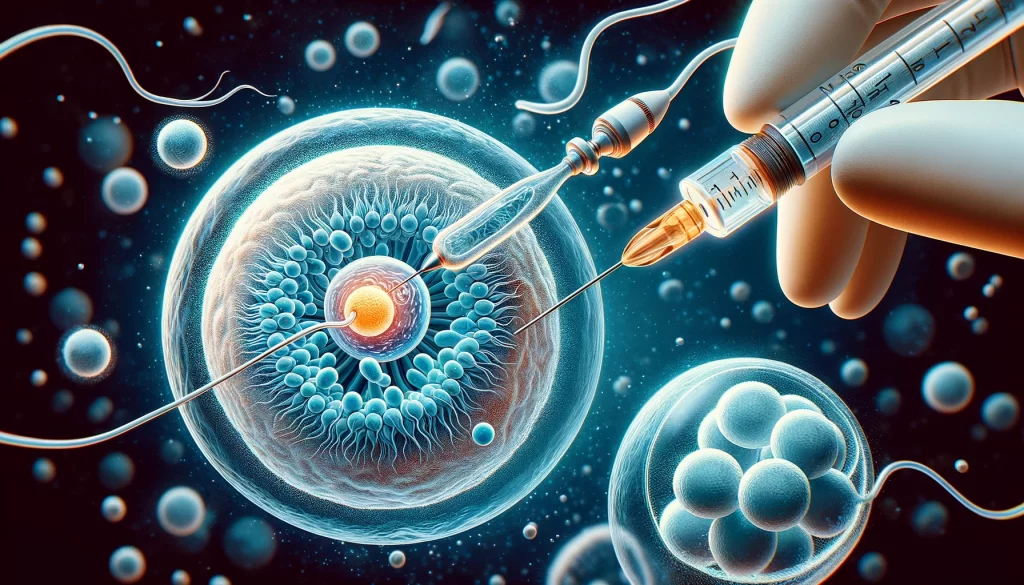
ICSI - Intracytoplasmic Sperm Injection
Intracytoplasmic Sperm Injection (ICSI) is a specialized form of In Vitro Fertilization (IVF) developed to help couples dealing with severe male infertility issues. First introduced in 1992, ICSI involves the direct injection of a single sperm into an egg to facilitate fertilization, enhancing the chances of conception when sperm count or motility is low.
The ICSI process begins similarly to IVF, with the woman undergoing hormonal treatment to stimulate the ovaries and produce multiple eggs. Once retrieved, instead of mixing sperm and eggs together, an embryologist selects a single healthy sperm and injects it directly into the cytoplasm of an egg using a fine glass needle. This technique dramatically increases the likelihood of fertilization as it bypasses many of the natural barriers that might prevent sperm from penetrating the egg.

After fertilization, the embryo is cultured in the laboratory for several days before being transferred to the woman’s uterus, hoping it will implant and lead to a successful pregnancy. ICSI is particularly beneficial for couples where previous IVF attempts have failed, or where the male partner has significantly compromised semen parameters.
While ICSI has opened the door to parenthood for many couples, it carries risks such as genetic disorders and developmental issues, prompting ongoing research and debate in the reproductive medicine community.
